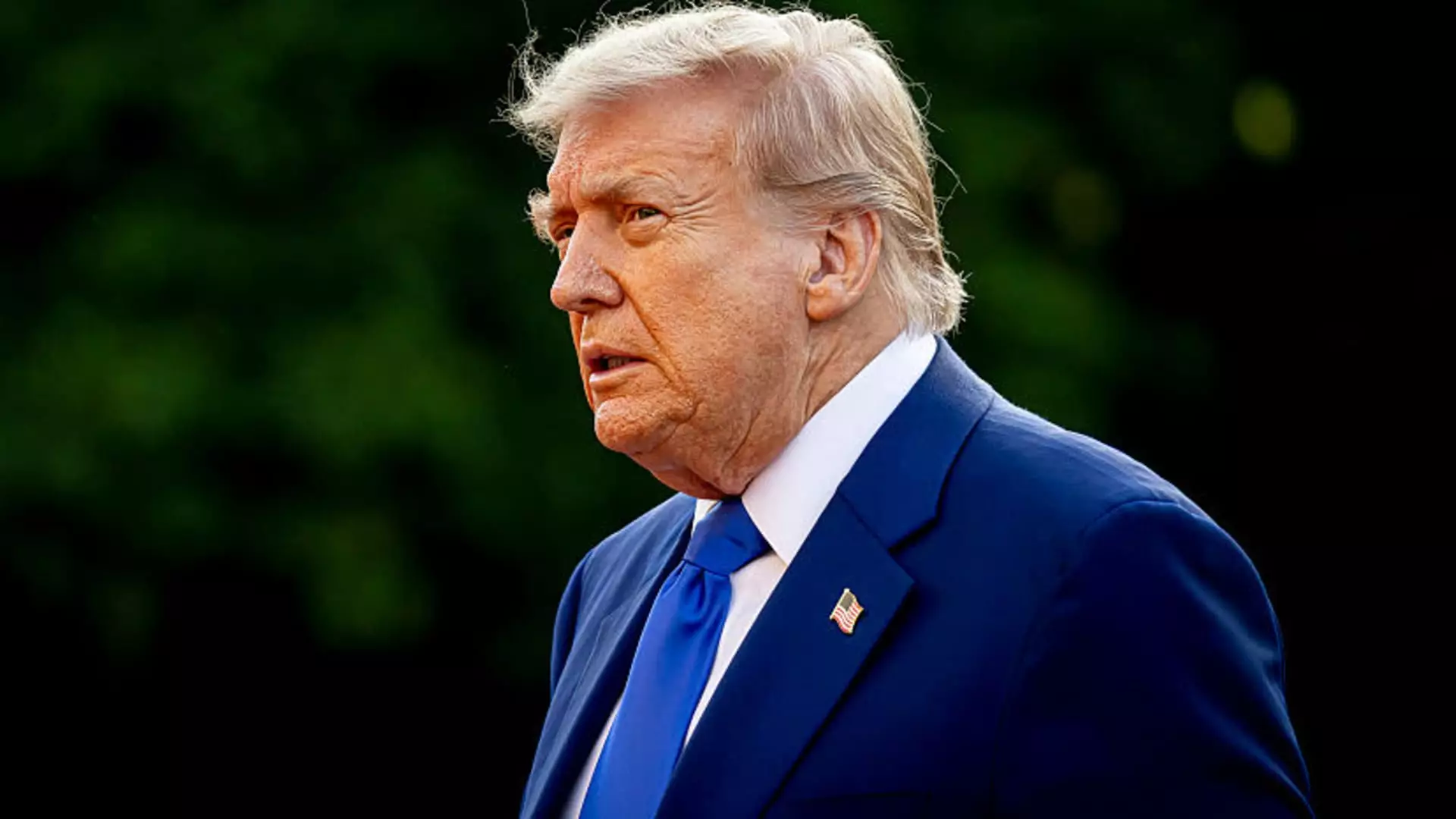In the tumultuous realm of international trade, the recent statements from the White House regarding tariffs reveal a troubling trend of improvisation and uncertainty. President Donald Trump’s administration has hinted that he may prolong the self-imposed deadlines on tariff negotiations, a move that strikes some as a tactical retreat rather than a confident stride towards genuine trade agreements. The political handling of tariffs — particularly concerning key players like the European Union and India — exemplifies a broader theme of lackadaisical negotiation practices that could unravel the very fabric of beneficial trade relations.
Press secretary Karoline Leavitt’s remarks, emphasizing that the July deadline “is not critical,” encapsulate a nonchalant attitude towards the potential economic consequences of indefinite delays. Rather than committing to a solid timeline, the administration leaves the impression that the president can arbitrarily dictate terms, further complicating an already chaotic environment for American businesses and international partners alike. This kind of ambivalence, while perhaps effective in appeasing certain political factions at home, risks casting doubt upon the United States’ reliability as a trading partner.
Golden Opportunity or Impending Disaster?
While some may argue that extending tariffs can give more leeway for negotiating optimal deals, this situation may ultimately serve as a double-edged sword. Uncertainty breeds cautiousness, and businesses operating in the U.S. economy thrive best under clear guidelines. The suspension of previously established tariff timelines raises questions not only about the ability to engage in good-faith negotiations but also about how long companies can hold their breath as they await favorable terms. With the specter of up to 50% tariffs on goods looming after July, the stakes are monumental—not just for international partners but even more so for American consumers and workers.
The perception that the administration can simply “pick a reciprocal tariff rate” further undermines the legitimacy of American negotiating power. If countries see the U.S. as an unpredictable player who may unilaterally impose crippling tariffs, they might think twice before entering into agreements, fearing the instability that follows. Ultimately, a return to higher rates can only lead to retaliatory measures, escalating a cyclical trade war that drains resources, innovation, and ultimately, consumer trust.
The Weak Foundations of Negotiated Agreements
The current state of negotiations paints a picture riddled with missed opportunities. Despite a bold challenge to achieve 90 trade deals within an improbable 90-day window, the reality has proven starkly different. Only two agreements with China and the United Kingdom have emerged, and even those are flimsily described as frameworks rather than finalized accords. This breeds skepticism about the efficiency and effectiveness of the administration’s trade strategy, suggesting that the ambitious narrative is more couched in bluster than legitimate progress.
Moreover, the establishing narrative that the U.S. is “very close” to reaching agreements, particularly with India, feels more like a desperate platitude than a real strategy, reflecting a lack of tangible outcomes. As economic advisers suggest that the promising deals will follow the passage of a major tax-and-spending bill, one must ask: how can trade be contingent upon domestic legislation? Such linkages dilute the focus on trade itself, turning a critical diplomatic effort into a series of political bargaining chips.
Striking at the Heart of American Expertise
The consequences of a muddled approach to trade can reverberate back home, infiltrating the job market and stifling economic growth. By failing to establish sound trade practices through clear and robust agreements, the administration risks alienating the very workers it professes to champion. American labor deserves better than to be collateral damage in a high-stakes game of tariff chess.
In an era where global interdependence defines economic survival, the need for a coherent and strategic approach to international trade cannot be overstated. The potential for chaos rising from this capricious handling of tariffs bears consequences far beyond the international stage—echoes of uncertainty resonate in every manufacturing plant and retail store. U.S. leadership must focus on fostering trust and reliability in trade relations rather than indulging in an unhinged dance of indecision that invites risk rather than reward.


Leave a Reply